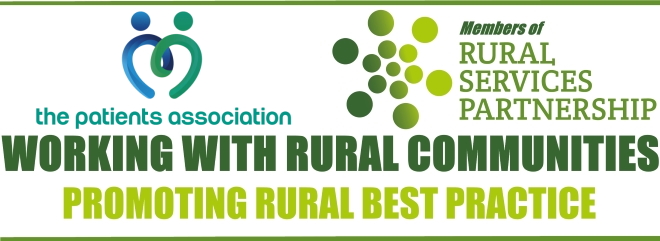T: 01822 851370 E: [email protected]
Visit RSN Survey about life in rural England to find out more.
Examining the impact of health inequalities on cancer and blood disorder patients
 The Patients Association is carrying out work to advance health equity by addressing social determinants of health for people living with cancer and blood disorders.
The Patients Association is carrying out work to advance health equity by addressing social determinants of health for people living with cancer and blood disorders.

The Patients Association has found that cancer and blood disorder patients that experience health inequalities have worse health and care outcomes and experience of care than those who don’t. Delays in symptom presentation, low uptake of screening programmes and less engagement with mainstream services by at risk communities are underpinned by low health literacy, mistrust of mainstream services, cultural barriers, stigmatisation and poor experiences of care. Variation in care and treatment was found to be associated with experiencing inequalities; these included living in a deprived area, being from a Black and minority ethnic community, experiencing homelessness and having an intellectual disability, among other factors. A lack of training of health professionals, lack of joined-up care, access delays and closures to services were among the factors identified as contributing to poor patient outcomes and experience.
The rising cost-of-living and prohibitively high transportation and medication costs were a particular pain point, further exacerbated by the economic burden of having cancer and/or a blood disorder. There are barriers that underserved communities may face when accessing services and in their experience of care, in the form of lower quality services, delays in testing and diagnosis, lack of participation in shared decision making, and unequal access to digital technology. A consistent thread throughout these experiences was a lack of patient partnership and listening to the patient voice, with patients not being viewed as an expert on their own health condition and not being listened to.
Another barrier to care is transportation costs to attend appointments and treatment. To afford transportation costs, patients/families are cutting back on other items such as recreational and social activities, getting into debt and falling behind on paying bills, selling their possessions or assets, and making difficult decisions between travelling to hospital or paying for essentials.
Patients expressed a deep understanding of the connection between social determinants of health and the impact on health outcomes and wellbeing, with inadequate housing, lack of access to healthy foods, and living in an under-resourced neighbourhood playing a significant role in their lives. This was especially the case for those living in a deprived area where there was less access to adequate healthcare and resources in the community that support health (eg, healthy food shops, gym clubs, social and community groups), resulting in an outsized and negative impact on a patient’s health and wellbeing. Profound impact of living in a deprived area where there was often inadequate health and social care resources available and widespread staffing shortages. For example, since cancer treatment sites are not typically located in deprived areas, residents had to travel across counties, and even to other countries to access treatment. People living in deprived areas seemed to feel resigned to being in poorer health, and not believe that there was assistance available to them.



